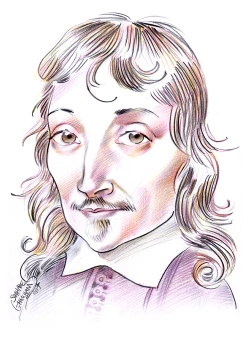GOD, MIND, AND BODY - DESCARTES
Publié le 09/01/2010
Extrait du document

The upshot of the Cartesian doubt and the cogito is Descartes' conclusion that he is a thing that thinks, a conscious being. But is that all he is? Well, at this stage, this is all that he is certain of. ‘There is thought: of this and this only I cannot be deprived. I am, I exist; that is certain. For how long? For as long as I am thinking; maybe if I wholly ceased to think, I should at once wholly cease to be. For the present I am admitting only what is necessarily true; I am, with this qualification, no more than a thinking thing.' Later, Descartes concludes ‘my essence consists solely in the fact that I am a thinking thing'. Now of course not being certain that I have any essence other than thought is not at all the same thing as being certain that I do not have any essence other than thought. Scholars still debate whether Descartes failed to distinguish between the two. But in his Meditations, for his last word on the relation between mind and body, we have to wait until he has considered the existence and nature of God.
Liens utiles
- Body and Soul - analyse de l'oeuvre.
- Ferret The ferret is a small mammal with short legs and a long, slim body.
- Io Greek The beautiful daughter of the river god Inachus, and a priestess of Hera.
- Jupiter (Iupiter; Jove) (Jove) Roman The supreme god of the Roman pantheon; son of Saturn and Ops; husband of Juno.
- Liber (Free) Roman An ancient god of fertility and procreation, particularly of seeds and plants.































